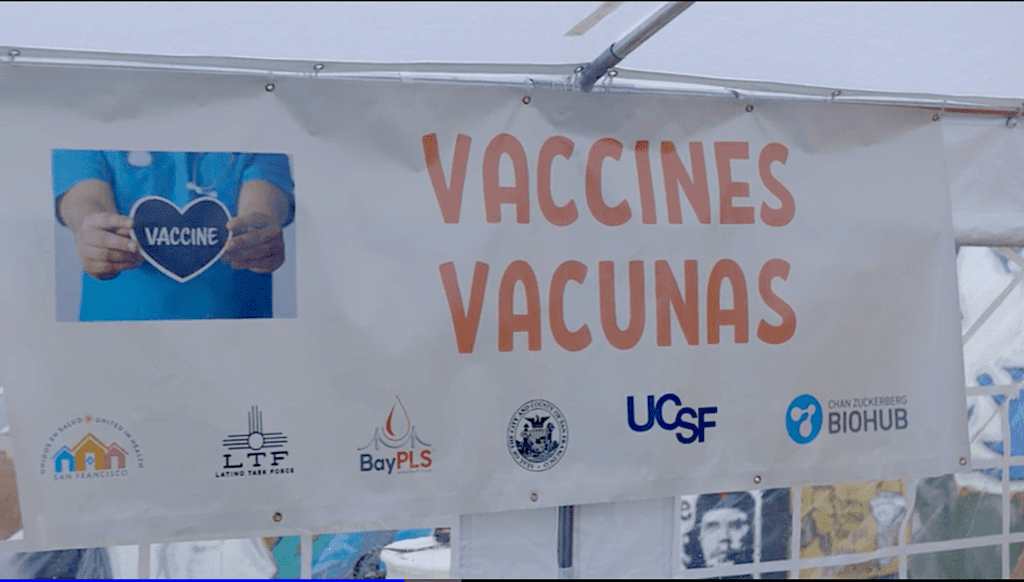
Relationships forged during the pandemic pave the way for new approaches to community health.
Jackie Martinez is Primary.Health’s Head of Product. At the start of the pandemic, she joined the Unidos en Salud, a collaborative spearheaded by Latino Task Force (LTF) and UC San Francisco (UCSF), which provides COVID response services and science for the Latinx community in San Francisco. We asked her about her experience as a volunteer and what pandemic lessons can be applied to health equity efforts going forward.
Can you tell us about Unidos en Salud and how you connected with them?
Unidos en Salud is a San Francisco-based community health organization that brought together a variety of stakeholders during the pandemic. It has members from local community organizations, the academic community, healthcare systems, city government, technology companies, funding partners, and others.
I knew the principal investigators from UCSF, and they needed help with the technology and operations components of their first community partnerships in March 2020. Since then, I’ve worked with them as a tech lead through COVID testing and vaccines as well as their expansion into a multi-disease approach including HIV, MPX, and diabetes screening.
How did the pandemic bring to light health inequities impacting the
Latinx community in San Francisco?
The data showed early on that the Latinx community was experiencing disproportionate harm in terms of positive cases and hospitalizations. In densely populated Latinx neighborhoods, there was less access to testing, vaccinations, and care, and there was often pressure to keep working through illness due to financial stress. These health inequities existed previously, but became magnified during a health crisis.
What actions did Unidos en Salud take and what role did Primary.Health play?
The response centered around creating a testing and vaccination site close to mass transit used by a high volume of community members in the Mission District. A friendly community health team was ready to answer questions in Spanish or English, and regular community events were held to distribute the latest science, build trust, and foster relationships. Other partners provided ancillary support such as food or financial support for those that had to isolate. The results were very positive from the thousands of people who visited the site:
- 58% stated they were able to get vaccinated faster there than they would have otherwise
- 99% said they were highly satisfied with their experience
- 83% reported that at least one friend or family member got vaccinated after they recommended it to them
Primary.Health’s role was to provide the software platform to administer the tests and vaccinations and the data reporting to inform efforts. An easy-to-use system for patients to register and provide consent in their own language was critical for the user experience, enabling the site to handle large volumes of people as quickly as possible. Promotores (community health workers) also could get trained on the platform quickly to start leveraging their relationships to build trust. In addition, the real-time reporting from the platform let us know what was working and where we were making an impact.
What were the key learnings from the efforts?
One is that it takes many organizations working together to drive meaningful results in community health. No single institution can carry the load by itself. The other one that stands out for me is the value of the relationships with the community you are trying to serve. The efforts to build those relationships should be done consistently, not just during the peak of a pandemic, and should focus on building long-term relationships rather than short-term transactional ones.
How would you apply those pandemic lessons to health equity efforts
beyond the pandemic?
I’m incredibly optimistic we can address more areas related to health equity by leveraging all the new ‘tools’ that emerged – partnerships, technology, relationships, tactics, etc. Unidos en Salud has already moved in this direction by offering rapid tests and access to care options for other conditions and illnesses such as diabetes, flu, and sexually transmitted infections. Because they invested the time to build relationships with the community, they have a foundation from which they can expand services.
As a technology solution company, we have our role to play as well. We provide a secure, flexible platform that can support expansion into new tests, vaccines, and a variety of care pathways. The pandemic forced the world to come up with new approaches and solutions to community health. That’s what I’m passionate about, and what we are working on at Primary.Health.
